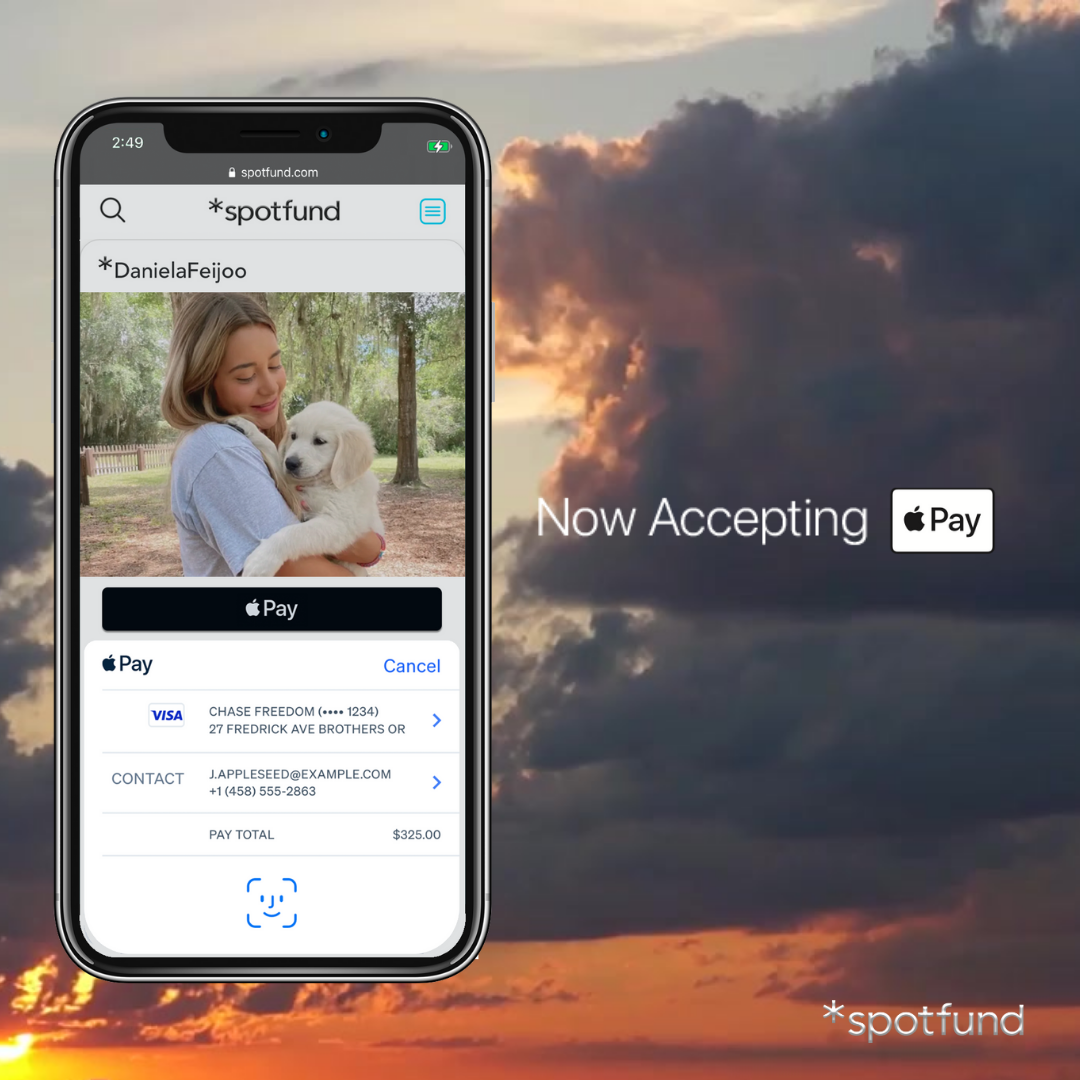Studying abroad, whether for a semester or an entire exchange program, is frequently hailed as a transformative journey that broadens horizons, enriches global understanding, and offers boundless adventures. Yet, the exhilarating idea of spending a term overseas is often shadowed by the substantial financial demands associated with such programs, presenting a significant barrier for many aspiring international students.
However, there's a silver lining: With diligent planning, a touch of ingenuity, and some creative fundraising ideas, raising money for your academic sojourn becomes an attainable goal. Whether you're a student gearing up for a semester abroad or a parent aiming to support their child's dreams, this blog post offers insights to help navigate the financial maze. From traditional financial aid options to community service initiatives that have raised money effectively, we'll guide you through a plethora of strategies to make your international education ambitions come to life.

Understand Your Financial Needs
Embarking on the transformative journey of studying abroad is as much a financial commitment as it is an educational and cultural one. Before jumping into fundraising efforts, it's vital to have a comprehensive understanding of the financial landscape you're entering.
1. Calculate Tuition
-
Research: Start by checking the program fees of the institution you're attending abroad. This might vary depending on the country, university, and course duration.
-
Additional Fees: Don’t forget about any extra charges like lab fees, library fees, or facility usage fees that might be added to your total tuition.
2. Accommodation Costs
-
Options: Are you considering university dorms, shared apartments, homestays, or private rentals? Each comes with its own price range.
-
Utilities: Factor in costs like electricity, water, internet, and any other utilities if they aren't included in your rent.
-
Deposit: Many places require a security deposit, so account for this initial cost.
3. Travel Expenses
-
Flights: Research round-trip flights to your destination, and consider if you'll be returning home during breaks.
-
Local Transport: Consider the cost of public transportation, bike rentals, or any other mode of transport you might use regularly.
-
Unexpected Travel: Always have a small budget for unplanned travel, be it a sudden trip home or exploring neighboring cities.
4. Daily Expenses
-
Food: Whether you’re dining in the university cafeteria, cooking at home, or eating out, understand the average meal costs.
-
Mobile & Connectivity: Factor in the cost of a local SIM card, monthly mobile plans, and perhaps additional data packages.
-
Entertainment and Leisure: Set aside a budget for recreational activities, sightseeing, movies, or any hobbies you plan to pursue.
5. Miscellaneous Costs
-
Study Materials: Books, stationery, and other academic resources.
-
Healthcare: Insurance, regular check-ups, or any medical bills.
-
Emergencies: It's wise to have an emergency fund for unforeseen events.
Setting a Clear Fundraising Goal
Once you have a ballpark figure from the above breakdown:
-
Total it Up: Add up all the estimated costs to get a cumulative amount required for your study abroad experience.
-
Buffer Amount: Always add a buffer of around 10-15% to your total to account for any currency fluctuations, inflation, or unexpected expenses.
-
Set Milestones: Break your total fundraising goal into milestones. This makes the task less daunting and allows you to celebrate small victories along the way.
-
Regularly Review: As you approach your departure date, revisit your calculations. Prices may have changed, or you may have new information.
Understanding your financial needs is the foundation of successful fundraising. With a clear roadmap of expenses and a set goal, you can approach potential donors with confidence, demonstrating that you've done your homework and are serious about your study abroad aspirations.

4 Strategies for Effective Fundraising
1. Personal Savings
The first step towards ensuring your study abroad experience is financially secure begins at home. Personal savings not only reduce the burden of fundraising but also demonstrate financial responsibility to potential donors or scholarship committees.
Tips for Budgeting and Saving Effectively:
-
Start Early: The sooner you begin saving, the more you'll accumulate without feeling the pinch.
-
Track Your Spending: Use apps or traditional journals to understand where your money goes and identify areas to cut back.
-
Set Clear Goals: Have a clear amount in mind and a deadline. This will motivate you to stay on track.
-
Open a Dedicated Savings Account: This keeps your study abroad funds separate and prevents unintentional spending.
-
Reduce Unnecessary Expenses: Cut back on luxuries or impulsive buys. Prioritize your study abroad experience.
-
Automate Savings: Set up automatic transfers to your savings account right after payday.
-
Find Additional Income Sources: Take up part-time jobs, freelance gigs, or sell unused items to boost your savings.
2. Scholarships & Grants
While personal savings are essential, scholarships and grants are other great fundraising ideas, that can significantly reduce the financial burden of international studies. These are essentially 'free money' that doesn't need to be repaid, making them a sought-after funding source.
Scholarships and grants are financial awards given based on merit, need, or specific criteria. They can be offered by governments, private organizations, universities, or community groups.
While scholarships often reward academic, athletic, or other achievements, grants usually focus on financial needs or specific areas of study.
Tips on Finding Scholarships and Grants:
-
School Resources: Start with your current institution's financial assistance office or the international programs department. They often have information on scholarships specifically for study abroad programs.
-
Destination-Specific Awards: Some scholarships are awarded for studying in particular countries or regions.
-
Community Organizations: Local clubs, religious institutions, and community organizations sometimes offer scholarships to local students.
-
Field of Study: Some grants are targeted toward specific majors or fields of study.
Writing Effective Applications:
-
Start Early: This gives you ample time to research, write, and review.
-
Understand the Criteria: Ensure you fit the bill before applying. Tailor your application accordingly.
-
Personalize Your Essay: Make your story unique and compelling. Highlight why you're a good fit and how the experience will benefit you and the larger community.
-
Proofread: Ensure there are no errors. A well-polished application stands out.
-
Letters of Recommendation: Choose your references wisely. Inform them about the scholarship's specifics so they can craft a relevant letter.
-
Stay Organized: Keep track of deadlines, required documents, and follow-up dates.
3. Crowdfunding
In the age of the internet, crowdfunding has emerged as a powerful tool for individuals to raise money for personal causes, ventures, and dreams. For students aspiring to study abroad, it offers a platform to share their stories and gain financial support from a broad audience.
Overview of Leading Crowdfunding Platforms:
*spotfund: Among the top-tier crowdfunding startups, *spotfund has carved a significant niche for itself. The platform distinguishes itself by waiving platform fees, ensuring that fundraisers receive the maximum possible support. Its user-centric design ensures effortless campaign creation, while the seamless integration with social media channels amplifies the campaign's reach to a wider audience. Furthermore, the quick withdrawal feature ensures that funds are accessible when needed. Its stellar rating on Trustpilot is a testament to its reliability and efficiency. Specifically tailored for personal causes, *spotfund emerges as a prime choice for students looking to fund their study abroad aspirations.
Start to raise money for your tuition via *spotfund!

Crafting a Compelling Story for Potential Donors:
-
Personal Touch: Begin with your background and what led you to the decision to study abroad. Authenticity is key.
-
The Why: Clearly articulate why you want to study abroad. What do you hope to achieve? How will this experience shape your future?
-
Impact: Highlight the broader impact of your study abroad experience. Will you bring back knowledge to benefit your community? Do you plan to work on global issues?
-
Visuals: Use pictures, videos, or graphics to make your story more engaging. A short video of you explaining your journey can make a strong impression.
-
Transparency: Be clear about how the funds will be used. Providing a breakdown of expenses builds trust.
-
Updates: Regularly update your donors about your preparations, and any milestones reached, and acknowledge their support.
Promoting Your Campaign:
Promoting Through Social Media and Email: Leverage popular platforms such as Facebook, Instagram, Twitter, and LinkedIn to broadcast your campaign. It's essential to maintain a regular posting rhythm that incorporates a balance of updates, personal stories, and expressions of gratitude without overwhelming your audience. Interaction is crucial: make it a point to respond to comments, messages, and shares, fostering an environment of engagement that helps nurture a supportive community around your objective. Additionally, outreach through email remains influential. A heartfelt, personalized email to close friends, family members, and mentors can often strike a chord, leading to greater support. For those with an extended contact circle, circulating periodic newsletters filled with key updates and milestones can keep the interest alive and deepen the connection.
Engaging the Local Community Through Events: Local events provide a tangible way to connect with supporters. Consider hosting smaller fundraisers, such as bake sales, garage sales, or even talent showcases. These not only contribute directly to your fundraising efforts but also elevate the visibility of your cause within the community. Beyond hosting, it's beneficial to be an active community member by attending local gatherings, club meetings, and seminars. By sharing your aspirations and stories in such settings, you're likely to establish deeper bonds and elicit stronger support.
Remember, while the aim is to raise funds, the process of crowdfunding also expands your network, spreads awareness about your aspirations, and builds a community of supporters around you. Approach it with sincerity, passion, and gratitude, and you'll find many willing to help you achieve your dreams.
4. Part-Time Jobs & Internships
When gearing up for a study abroad experience, embracing the world of odd jobs and internships can not only help financially but also provide invaluable work experience and skills.
Benefits of Working While Preparing for Your Study Abroad:
-
Financial Boost: Even a few hours of work each week can help you accumulate a considerable amount over time, easing the financial strain of international studies.
-
Skill Development: Jobs and internships allow you to hone skills like communication, time management, teamwork, and industry-specific capabilities.
-
Networking: They provide opportunities to build a professional network, which can be especially useful if you plan to work in the same country where you'll study.
-
Understanding Work Culture: Getting a glimpse of workplace dynamics can prepare you for internships or jobs abroad.
-
Resume Building: Adding work experience or internships to your resume can make you stand out in future job applications or university admissions.
Job Ideas for Aspiring Study Abroad Students:
-
Tutoring: Use your academic strengths to tutor younger students or peers. Online platforms also offer opportunities for remote tutoring to students worldwide.
-
Freelance Gigs: Websites like Upwork, Fiverr, and Freelancer cater to a wide range of skills, from writing and graphic design to data entry and programming.
-
Remote Jobs: Many companies now offer roles that can be done from anywhere, be it customer service, content creation, or digital marketing.
-
Campus Jobs: Universities often hire students for roles in libraries, dining services, or administrative tasks. These roles come with the added benefit of flexible hours tailored for students.
Internships Related to Your Field of Study Abroad:
-
Align with Your Major: Seek internships that relate to what you'll be studying abroad. This offers practical experience in your chosen field.
-
Paid Internships: Many companies and organizations offer stipends or salaries, helping you save for your trip.
-
Network: Use your internship to connect with professionals who might have contacts in your study abroad location.
Embarking on a study abroad journey is an exhilarating venture that promises invaluable experiences and growth. However, financing this dream requires meticulous planning and a strategic approach. By first gaining a comprehensive understanding of your financial needs, you establish a clear foundation upon which to build your fundraising endeavors. Armed with the knowledge from the "How to Raise Money for Study Abroad" guide, you're equipped with four potent strategies to turn your educational aspirations into reality. Remember, every effort, be it big or small, takes you a step closer to your goal. As you navigate this path, let perseverance, creativity, and the shared wisdom from this blog be your guiding lights. Here's to a fulfilling and enlightening journey abroad!
Ready to fund your study abroad dream? Start your journey with *spotfund today – the top choice for personal causes.

